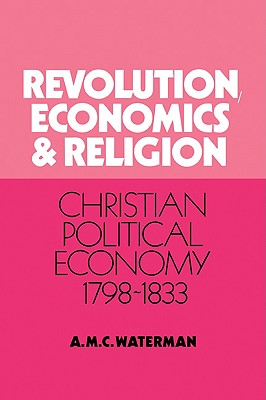This book is about the intellectual defense against the French Revolution and all "radical" ideas that was developed after Malthus’ pioneering Essay on Population was published in 1798. A political economy was developed in the years following which, combined with Anglican theology, was able to discover a middle ground between ultra-Toryism and radical reform. Certain ideas fundamental to modern economics also emerged as a by-product. Professor Waterman’s main purpose is to complete the story of the "intellectual repulse of the Revolution" by describing this ideological alliance of political economy and Christian theology. In doing so he supplies the "missing piece of the jigsaw" in early nineteenth-century English intellectual history.
| FindBook |
有 1 項符合
Revolution, Economics and Religion: Christian Political Economy, 1798 1833的圖書 |
 |
Revolution, Economics and Religion: Christian Political Economy, 1798 1833 作者:Waterman 出版社:Cambridge University Press 出版日期:2006-11-02 語言:英文 規格:平裝 / 328頁 / 22.9 x 15.2 x 1.8 cm / 普通級 |
| 圖書館借閱 |
| 國家圖書館 | 全國圖書書目資訊網 | 國立公共資訊圖書館 | 電子書服務平台 | MetaCat 跨館整合查詢 |
| 臺北市立圖書館 | 新北市立圖書館 | 基隆市公共圖書館 | 桃園市立圖書館 | 新竹縣公共圖書館 |
| 苗栗縣立圖書館 | 臺中市立圖書館 | 彰化縣公共圖書館 | 南投縣文化局 | 雲林縣公共圖書館 |
| 嘉義縣圖書館 | 臺南市立圖書館 | 高雄市立圖書館 | 屏東縣公共圖書館 | 宜蘭縣公共圖書館 |
| 花蓮縣文化局 | 臺東縣文化處 |
|
|
圖書介紹 - 資料來源:博客來 評分:
圖書名稱:Revolution, Economics and Religion: Christian Political Economy, 1798 1833
|











